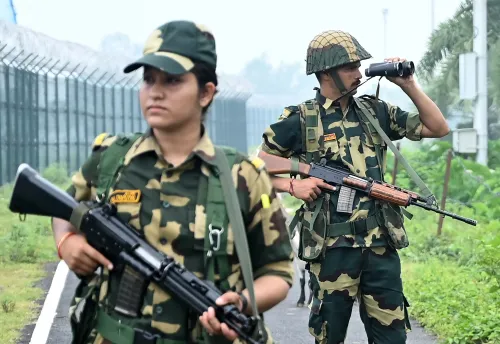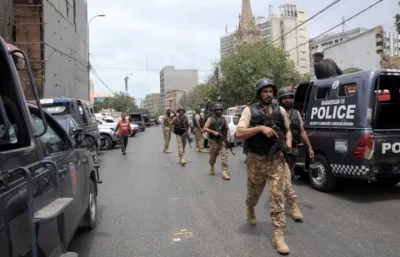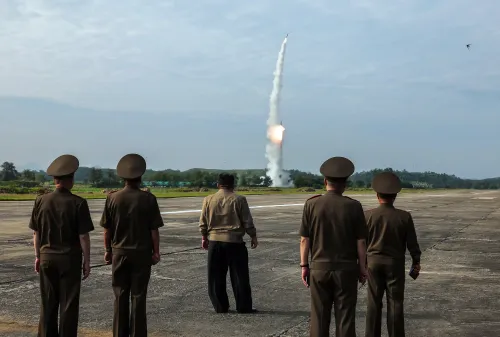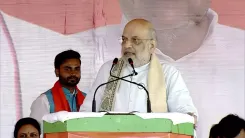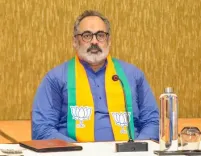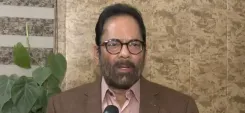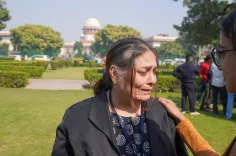Can Terrorism Ever Be Justified? Japanese Foreign Minister Speaks Out During Indian Delegation Meeting
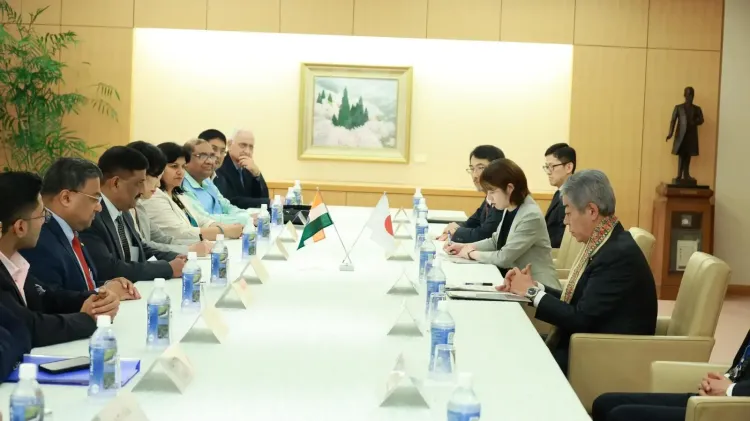
Synopsis
Key Takeaways
- Japan condemns terrorism unequivocally.
- India and Japan reaffirm their partnership against terror.
- Condolences offered for the Kashmir attack victims.
- Emphasis on dialogue for peace in South Asia.
- Call for justice against perpetrators of terrorism.
Tokyo, May 22 (NationPress) Japan, which maintains a 'Special Strategic and Global Partnership' with India, firmly denounced the escalating menace of terrorism during a meeting with a visiting delegation of Indian Parliamentarians led by Rajya Sabha MP Sanjay Kumar Jha.
The delegation, representing all parties from India and arriving in Tokyo earlier in the day, engaged with Japanese Foreign Minister Takeshi Iwaya, reiterating India's steadfast commitment against terrorism under Operation Sindoor, a global initiative aimed at revealing Pakistan and the international terrorist organizations operating from its territory.
Initially, Iwaya expressed his condolences to the families of victims from the recent terrorist attack in Kashmir and extended his sympathies to the injured.
"Minister Iwaya emphasized that terrorism is indefensible, stating that Japan unequivocally condemns all forms of terrorist acts and is committed to collaborating with the international community, including India, in a resolute fight against terrorism," according to a statement released by the Japanese Foreign Ministry following the meeting.
While Iwaya welcomed the recent agreement between India and Pakistan to halt military operations, he noted his discussions with External Affairs Minister S. Jaishankar and Pakistan Foreign Minister Ishaq Dar, expressing hope for resolution through dialogue for the sake of peace and stability in South Asia. Jha, a member of the Janata Dal (United), provided a comprehensive overview of India's stance on the current situation.
In an interesting development, Foreign Secretary Vikram Misri is also in Tokyo and engaged in the Foreign Secretary-Vice Minister Dialogue with Japan’s Vice Minister for Foreign Affairs, Takehiro Funakoshi.
During discussions on recent regional developments, especially in the Indo-Pacific region, Misri conveyed India’s zero tolerance policy towards terrorism.
Meanwhile, the Indian parliamentary delegation held significant discussions with Takashi Endo, Chairman of the Japanese House of Representatives Committee on National Security.
Iwaya stressed the importance of bringing terrorists to justice and expressed strong support for India’s response to the Pahalgam attack.
"We reiterated our national resolve to take decisive action against terrorism and its supporters. We are thankful for Japan’s backing and for advocating justice against the perpetrators of such acts," Jha shared on X after the meeting.
The delegation includes BJP MPs Aparajita Sarangi and Brij Lal, Trinamool Congress MP Abhishek Banerjee, CPI(M) Rajya Sabha member John Barittas, and prominent Congress leader Salman Khurshid.
This visit signifies the commencement of India’s significant diplomatic initiative to unveil Pakistan's persistent involvement in cross-border terrorism following the April 22 Pahalgam attack.


